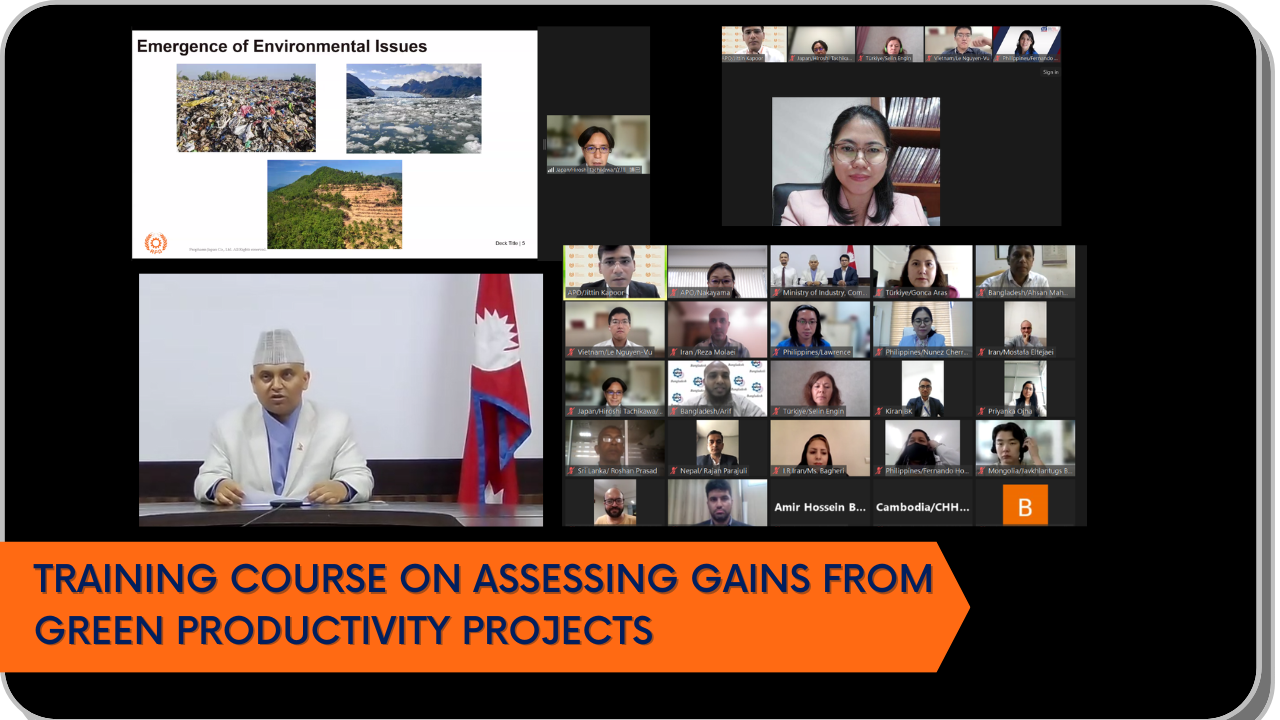
Select Page

The APO GP concept guides enterprises, especially SMEs, in improving their environmental performance with simultaneous increases in productivity, quality, and employee well-being. The APO Vision 2025 calls for enhancing current programs on GP, specifically indicating assessment of green performance to ensure sustainable production planning. To determine the impact of GP projects, the six-step, 13-task GP methodology includes ways to monitor GP projects implemented for management review. The tools address concerns such as the actual rate of return, quantification of improvement in productivity, and ascertaining the scalability and replicability of options.
An online training course on Assessing Gains from Green Productivity Projects was organized by the NPEDC, Nepal, and APO Secretariat, 27–30 August. The course aimed to deepen understanding of the GP concept, gain insights into approaches to assess and monitor the outcomes of GP projects, and highlight the impact on productivity at enterprise level as well as examine the nuances of GP methodology from assessment and monitoring perspectives.
Twenty-eight participants from 11 APO members completed the course, guided by three resource persons, one each from Japan, Nepal, and South Africa, who provided insights into the APO GP concept, core principles of measurement and verification, cases based on the circular economy and GP, key elements of monitoring and evaluation in GP methodology, tools for monitoring and review, framework of measurement and verification, and GP complementing the circular economy. The hands-on exercises using tools relevant in monitoring and review of GP projects and on “options” for developing and implementing measurement and verification processes deepened participants’ understanding of assessing gains from projects envisaging reduced inputs and productivity improvement.